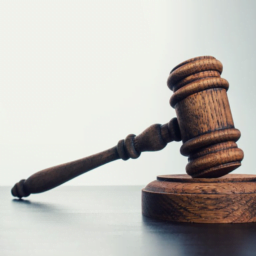INTRODUCTION
Under the Code of Civil Procedure, there are two kinds of suits – general and special. There are eighteen kinds of suits which fall under the category of special suits. These suits have some special characteristics and hence owe their name as “special suits.”
Suits by or against Government or public officers (Sections 79-82); Order 27
The purpose behind this section is to give an opportunity to public officers and the government so that they consider the claim of the plaintiff if it is found to be proper and just. The provisions do not deal with rights and liabilities that are enforceable by or against the government, they merely prescribe the procedure. No suit shall be instituted against public officer or government for the acts done in their official capacity, until two months has expired after serving the notice or the notice is being left at their place[1]. If the suit is to be brought against the government, the notice should be served in all the cases and for the public officers is to be served only when the suit pertains to the acts done while discharging their official duty. The notice must include essential details such as – the name of the plaintiff, his address and residence, statement of cause of action and the relief which he wants to claim. The government can give up the benefit of receiving the notice. If the urgent relief is to be claimed by the plaintiff, then following the strict procedure of serving the notice need not be met.
Under “Order 27” only the government and not the “instrumentality of the state under Article 12 of the Constitution” shall be included[2].
Suits by Aliens – Section 83
The suit can be brought in any competent court by alien friends and enemies residing in India after procuring permission from the Central Government. The people residing in the country which is at the war with India will be considered as an enemy of India.
Suits by or against Foreign Rulers, Ambassadors and Envoys, Rulers of former Indian States Sections 84-87- A, 87- B
Only after the consent of the Central government suit can be brought or decree can be executed against “foreign envoys, ambassadors and rulers”. The central government would give its consent only when the conditions mentioned under the “Section 86(2)” are satisfied. Same procedure is to be followed in the case of the suit which is against or by the ruler of any former Indian State. Foreign ruler can sue and be sued in the name of its state.
Suits by or against soldiers, sailors and airmen : Order 28
If the airmen, soldiers and sailors are unable to obtain permission from the court for defending or prosecuting the suit in person, any other person can be authorised by them for the same who can do it either through a pleader or he can himself do it. Through the commanding officer of sailors, airmen and soldiers, the summons can be served to them.
Suits by or against corporations: Order 29
Suits which are against or by a corporation can be verified and signed by director/secretary/any other principal officer. Their personal appearance can be required by the Court so that they could answer the material questions which are in relation to the suit.
Suits by or against partnership firms: Order 30
When the cause of the action accrues, the partners can be sued or can sue in the name of the firm of which they were partners.
Suits by or against trustees, executors and administrators: Order 31
It is not necessary to join the beneficiaries as parties to the suit, if the suit is between strangers and persons who are beneficially interested in the property that vests in administrators, executors and trustees. Except the executor who has not proved the will of the testator and the administrators, executors and trustees living outside India all of them should be included in the suit.
Suits by or against minors and lunatics: Order 32
21 years of age is considered to be the age of majority, for the minors where the court has appointed the guardian but generally the term “minor” refers to the person who has not completed 18 years of age. The provisions are the same for persons of unsound mind. The principles of equity, good conscience and justice are reflected under these provisions without which interests of person who suffer owing to their legal incapacity would suffer.
Friendly suits : Section 90, Order 36
An agreement in writing ( must be filed in the court which has jurisdiction) stating such question in the form of case so that the opinion of court can be obtained is entered by the parties, and they do not approach the court by presenting the plaint as it is done in case of ordinary suits. Consent decree is passed in such suits.
Interpleader suit: Section 88, Order 35
The plaintiff is not interested in the subject matter of the suit as he is, in case of ordinary suits. These kinds of suits are instituted so that claims of defendants which are rival in nature can be settled. Prayers in the plaint determines whether it would fall under the scope of this kind of suit.
Suits by indigent persons: Order 33
This provision is meant to ensure that the justice is given even to the persons who owing to their financial incapacity are unable to pay the court fees It ensures “free legal aid” which is fundamental right under “Article 21”.
Suits relating to constitutional validity of statutory instruments: Order 27 A
The Court shall not proceed to determine the question of law in the suit or an appeal which involves interpretation of the Constitution, until the notice is served to the “Attorney General” if the question of law concerns the Central Government and if the question of law concerns to the State Government notice is to be given to the “Advocate General”.
Mortgage Suits: Order 34
The order deals with enforcement of charges and framing of suit which is related to foreclosure, redemption and sale of the property that is mortgaged ( immovable property).
Summary suits: Order 37”
This provision ensures expeditious hearing and disposal of the suits, and to prevent defendant who though not having defence is unreasonably causing the obstruction in the suit. Though it deviates from the maxim “audi alteram partem” but if the defendant does not have any substantial defence or if it the defence is false and with malafide motive the same will not be allowed in these kinds of suits.
Suits relating to public nuisance: Section 91
The public nuisance being a challenge to the general well being of society needs special attention. To meet such situations this provision is provided by the code. It is also the duty and the power of the government to takes appropriate steps to remove this evil.
Suits relating to public trusts: Section 92
The purpose behind this section is to provide protection to the public trusts of religious or charitable from being harassed by suits that are filed against them.
Conclusion
These special suits as the name suggests are different from ordinary suits to meet special situations and the procedures are different than the procedures normally followed in case of ordinary suits. Procedures to file such suits are elaborately discussed in the code. Suits such as “summary suits” help in the speedy disposal of cases which falls under the category of fundamental rights under “Article 21”. “Friendly suits” helps the decree to be decided based on the agreement/compromise between the parties rather than the parties disputing against each other to settle their claims. Suits relating to indigent persons ensures justice being provided even to the sections that are economically weak. These suits are very much relevant in contemporary time and help in aiding the process of justice.
Author(s) Name: Nivedita Tiwari (SRM University)
References:
[1] Section 80, Civil Procedure Code, 1908.
[2] Kanpur Jal Sansthan v. Bapu Constructions [2015] 5 SCC 267.






